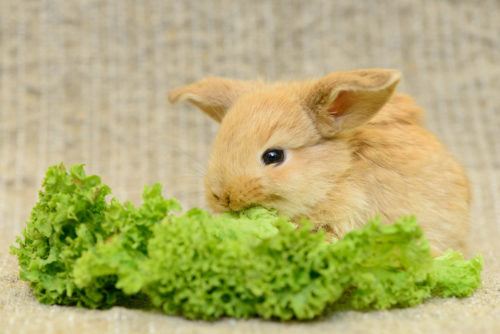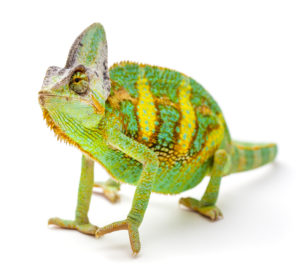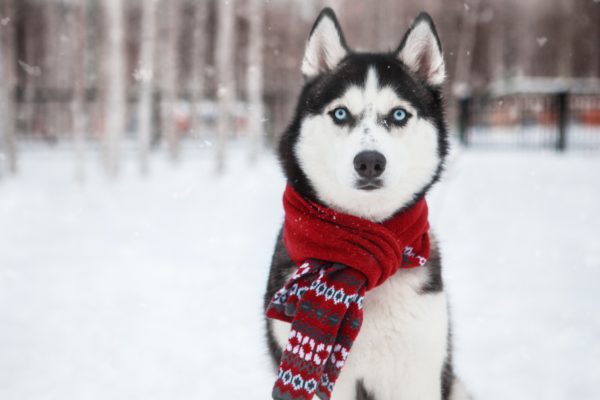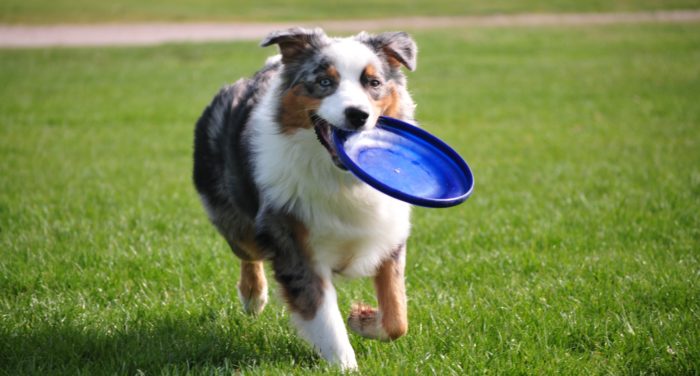Specialized Veterinary Diagnostics at Veterinary Referral Center
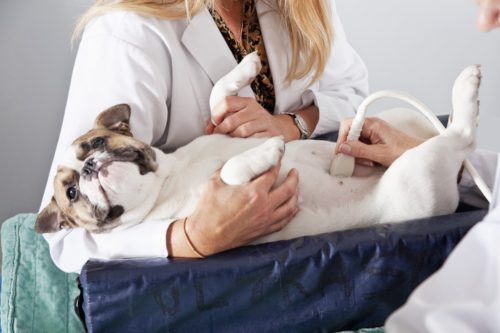
Veterinary Referral Center partners with family veterinarians to provide Eastern Pennsylvania pets with the most comprehensive veterinary care available. When your pet is not feeling like herself, you should visit your family veterinary hospital, where they likely will use diagnostics, such as radiographs (commonly known as “X-rays”) and blood work, to reach a diagnosis. More complex medical conditions, however, may require advanced diagnostic equipment, or the expertise of veterinary specialists, for a detailed diagnosis. If your family veterinarian refers your pet to VRC for advanced diagnostics, she will benefit from a multi-service specialty hospital with veterinary specialists who will collaborate across multiple departments to reach a diagnosis, and devise a treatment plan that will provide her with the best chance for a full recovery.
VRC is proud to maintain the most updated, state-of-the-art equipment to help us diagnose the most challenging medical conditions.
Ultrasound for pets
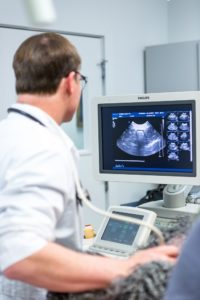
Our diagnostic imaging department uses several advanced tools to help us look inside your pet’s body. Ultrasound uses high-frequency sound waves emitted by a hand-held wand that bounce off internal structures, are received, and then translated into an image viewed on a screen. Our radiologists can interpret ultrasound images to diagnose conditions such as abdominal pain, pancreatitis, enlarged abdominal organs, and urinary stones. We also use ultrasound to guide needle biopsy of abnormal tissues, diseased organs, and tumors, where the needle collects cells that will be analyzed and identified under a microscope. Ultrasound exams can be scheduled by appointment, and our trained ultrasonographers are also available seven days a week for emergency evaluations.
Echocardiology for pets
An echocardiogram is a specialized ultrasound used to examine in detail the heart and surrounding blood vessels. Doppler ultrasound is often used during an echocardiograph to observe your pet’s blood flow through the heart to determine whether abnormal or turbulent flow is a component of her disease condition. Our veterinary cardiologist routinely performs echocardiograms to diagnose conditions such as heart murmurs, cardiomyopathy, narrowed blood vessels, and valvular abnormalities.
Computed tomography (CT) for pets
Some internal abnormalities can be identified with radiographs; however, a CT scan provides more detailed images of bones, soft tissues, organs, and blood vessels. A CT unit uses radiation, much like a traditional X-ray machine, to produce multiple cross-sectional slices of a body area that can be viewed in two and three dimensions. A CT scan allows our radiologists to appreciate the exact location and architecture of abnormal tissues, and is particularly helpful in locating tumors to help our surgeons plan their approach prior to surgical resection.
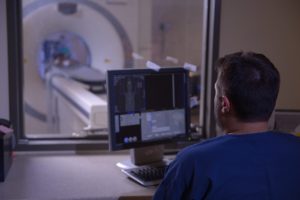
Magnetic resonance imaging (MRI) for pets
MRI is the most recently developed imaging modality available, and provides extremely detailed images, also in cross-sectional slices. MRI uses powerful magnets and low frequency radio waves to generate electromagnetic fields necessary to produce images, whereas a CT scan uses radiation. MRI is useful for imaging many internal body structures, and is the preferred method for imaging neurologic structures, such as the brain and spinal cord. VRC has the only on-site veterinary MRI unit in the area, and scans can be performed by appointment, or on an emergency basis.
Endoscopy for pets
An endoscope is a high-density camera on the end of rigid or flexible tubing that can be inserted into various body areas for examination. For example, an endoscope can be inserted into your pet’s esophagus to observe the lining for abnormalities and lesions, or advanced into her stomach to diagnose ulcers, collect tissue samples using instruments inserted through the tubing, or grasp a foreign object she may have eaten. An endoscope also can be inserted into your pet’s airways to view abnormal tissue, collect diagnostic samples, and locate and remove inhaled foreign bodies. Our surgeons use endoscopy when they perform minimally invasive surgery, where they insert an endoscope and instruments into a body cavity or joint through multiple tiny incisions, instead of making a large, more invasive incision.
At VRC, we are proud to offer our veterinary patients the same technology and advanced care available at human hospitals. Once our team of veterinary specialists diagnoses your pet’s complicated medical condition, she may be transferred to one of our specialty departments for treatment and monitoring, or referred back to your family veterinarian for continued care and follow-up. Contact us to schedule an appointment if your family veterinarian has referred your pet for specialty diagnostics or care.






 Email
Email